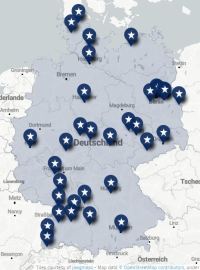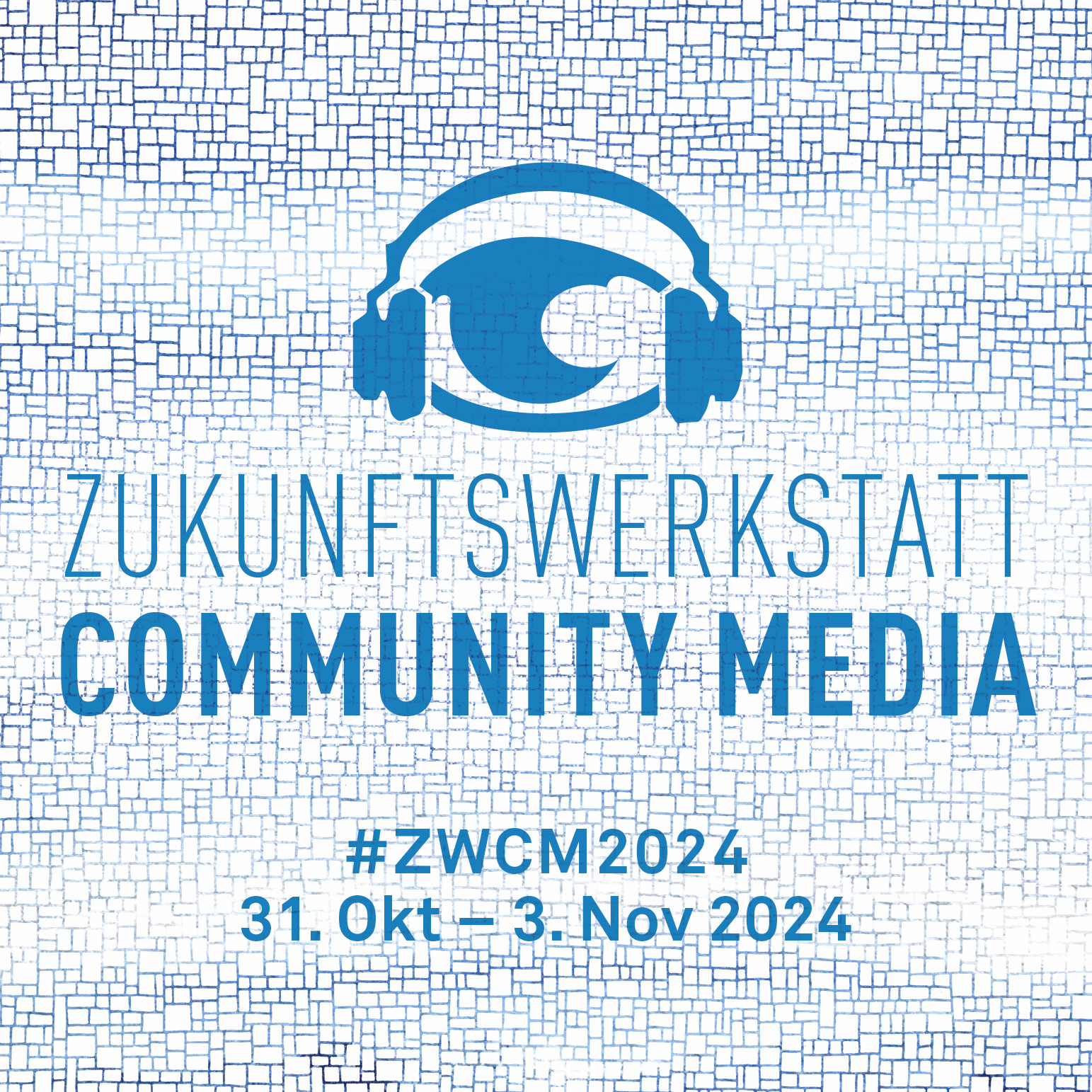-----Ursprüngliche Nachricht----- Von:
Dear Members, listed below you will find the list of activities proposed by the members of CMFE at the forthcoming CivilMedia09 unconference, to be held in Salzburg on 5-7 November 2009. Full details at http://wiki.civilmedia.eu - Friday 6 November, Room 1, 10.00/11.30 Challenges and opportunities for Community Media in the transition to digital broadcasting in Europe
This panel proposed by the Community Media Forum Europe aims to discuss current policy issues in European Community Media in the context of the transition to digital broadcasting systems.
Short presentations will give on overview of the European contexts - Pieter de Wit, An European Overview of current policy issues - Mojca Plansak, The state of European Digital Radio Research and of national/regional case studies - Christer Hederström & Rui Monteiro, Digital Community Television in the Nordic countries - Helmut Peissl, Community Radio Policy in Austria, Germany and Switzerland - Lawrie Hallett, The Digital Switchover context in the UK - Emmanuel Boutterin, DRM+ and the digital challenge/experimentation in France - Michael R. Kogler, Deputy Department Manager at the Office of the Federal Chancellor, in charge of Media affairs and Information Society and Director the office of the Federal Communication Senate The panel will be introduced by a tribute to two community media activists that left us this year in: 'How we got here: a tribute to the work of Thomas Kupfer and Christoph Lindemeier for Community Media in Europe'. Moderator:Salvatore Scifo
- Friday 6 November, Room 3, 13.30/15.00 Community Media and the Third Media sector - European Definition Facilitators: Christer Hederstrom, Salvatore Scifo
This session will discuss the meaning(s) of community media (CM) as adopted across Europe. For example, religious broadcasting is part of CM in some countries but not in others. In some cases there are privately operated and NGO-operated CM stations. In terms of financing: some are hevaily dependent on governmental fundings: would a Community Radio station 100 % funded by a government, the EU or UNESCO qualify as real CM? During we would like to stimulate debate with conference delegates from all over Europe present at the meeting. Community Media and the Third Media Sector - the European definition
In Europe community radio and community tv have been established de facto for several decades in some countries. But in other countries especially in Eastern Europe community media (CM) is quite a new sector.
With the European parliament resolution in September 2008 the CM sector became recognized; also as "the third media sector". However, CM is decscribed in many different ways in Europe and other parts of the world. As community radio is most common globally in some countries it is for example "non-commercial local radio" (Denmark and Germany), "radio associatif" (France), "närradio" (Sweden) or "lowpower FM" (USA). In some countries there is just "private radio" which can be either "commercial" or "non-commercial" outside the state/public service sector.
Community television is known as "open channels" (Germany, Norway and Sweden) or "public access" (USA).
The lack of a common defintion is of course the reason for this multitude of descriptive terms. But it is quite necessary to work for a common defintion in order to enhance the position as CM as the third media sector. This is important when we are asking for political or financial support from national governments and most of all from the European institutions.
Common Principles of Community media as stated in the CMFE statues: 1. Free access for the communities to the means of media communication 2. Freedom of speech and media plurality 3. Free access to information 4. Public and gender balanced access 5. Encouragement of local participation 6. Cultural diversity and respect to minorities 7. Orientation to participatory structures and self-determination 8. Editorial independence 9. Not-for-profit
In the its resolution the European parliament called on the Commission and the Member States to define community media as: a) non-profit making and independent, not only from national, but also from local power, engaging primarily in activities of public and civil society interest, serving clearly defined objectives which always include social value and contribute to intercultural dialogue; b) accountable to the community which they seek to serve, which means that they are to inform the community about their actions and decisions, to justify them, and to be penalised in the event of any misconduct, so that the service remains controlled by the interests of the community and the creation of 'top-down' networks is prevented. c) open to participation in the creation of content by members of the community, who may participate in all aspects of operation and management, although those in charge of editorial content must have professional status. (See also www.cmfe.eu)
Some questions to be answered might be on religious broadcasting which is a part of CM in some countries but not in others. Another focus can be on drawing the line between private operated and NGO operated CM. Or dependence on goverment funding; would a Community Radio station which is 100 % funded by a government, EU or UNICEF qualify as CM? And how do we handle right-wing or left-wing radio?
Seen out of an European lawmakers perspective it is quite obvious that a fourth media sector will not be established in a forseeable future. Could we then leave any radio or television on the outside? Should all radio and television which is not classified as public service/state or private/commercial be qualified as being the third media sector? Or is community media just a part of the third media sector. Would such a position rather weaken the movement for CM on the European level?
- Friday 6 November, Room 1, 15.30/16.30 Best practice in state funding for community radio: An international comparative study
Ciarán Murray (near media co-op & CMFE) & Dr. Ken Murphy (Nat University Ireland, Maynooth)
This presentation will introduce the research and invite comments and observations. The research will examine models for supporting programme production by community radio broadcasters and explore how those models contribute to the capacities and sustainability of the sector. The main countries in question are Ireland, Austria, Denmark, Germany, Switzerland, New Zealand and US. It is an innovative collaboration between academic and community sector media researchers which will contribute to the mapping of the future development of the community radio sector in Ireland and abroad. The project will detail current models for programme production support in several jurisdictions and evaluate their relevance for programme production support schemes in the Irish context. Drawing on consultative research with the community media sector in Ireland and comparative research on support schemes administered by broadcasting authorities in several comparable jurisdictions, it will provide a critical analysis of the current framework for programme production support in the Irish community sector and compare it with similar initiatives in a range of jurisdictions. The project will inform the debate on models for state programme production support schemes relevant in Ireland and internationally.
- Friday 6 November, Room 1, 16.30/17.30 CoE Campaign "Speak out against discrimination" (Stefan Tenner, session prepared with CMFE's representative for the campaign at the CoE, Nadia Bellardi)
CMFE (Community Media Forum Europe) is participating to the Council of Europe's Speak out against discrimination Campaign. In particular, we are part of the "Media & Diversity" component of the campaign, working on the topic of proactive policies to promote access for minorities to media professions and productions. The campaign is also encouraging media professionals to produce and disseminate high-quality, professional information promoting intercultural dialogue and the fight against discrimination in Europe.
In this workshop we would like to briefly present the campaign and discuss the issues of media / diversity / intercultural dialogue / antidiscrimination, identifying the main principles and values commonly shared by community media at the European level on these issues. In particular, we would like to collect feedback on best practices and policies in community media regarding both recruitment and editorial content, from the point of view of diversity.
Details about the Open Board Meeting of CMFE have been sent with a separate message.
All the best and see you soon in Salzburg!
Salvo
-------------------------------------------------- Salvatore Scifo Secretary, Community Media Forum Europe (CMFE) www.cmfe.eu
_______________________________________________ Members_cmfe mailing list


